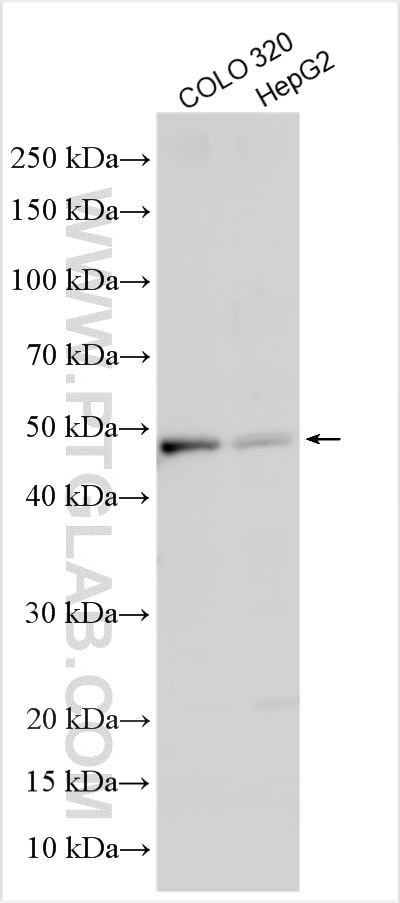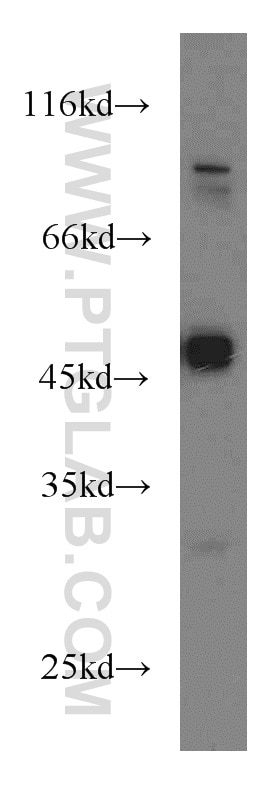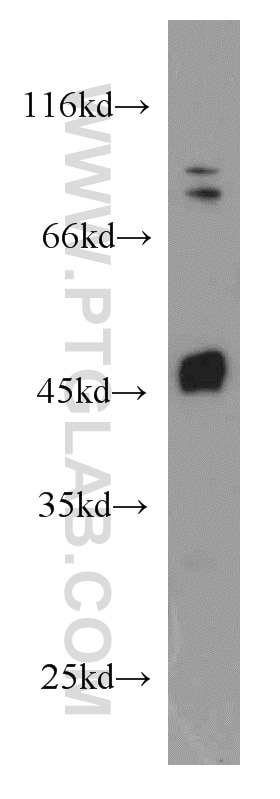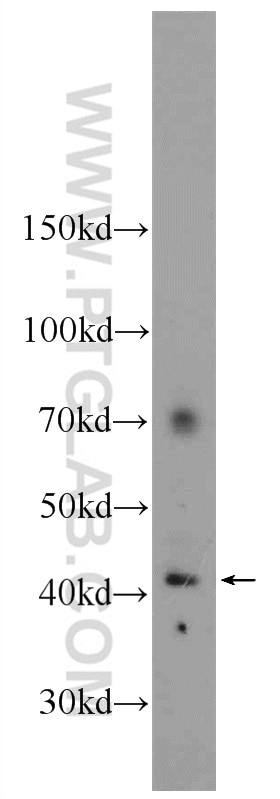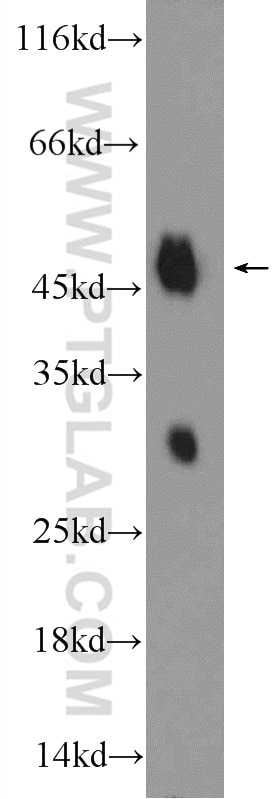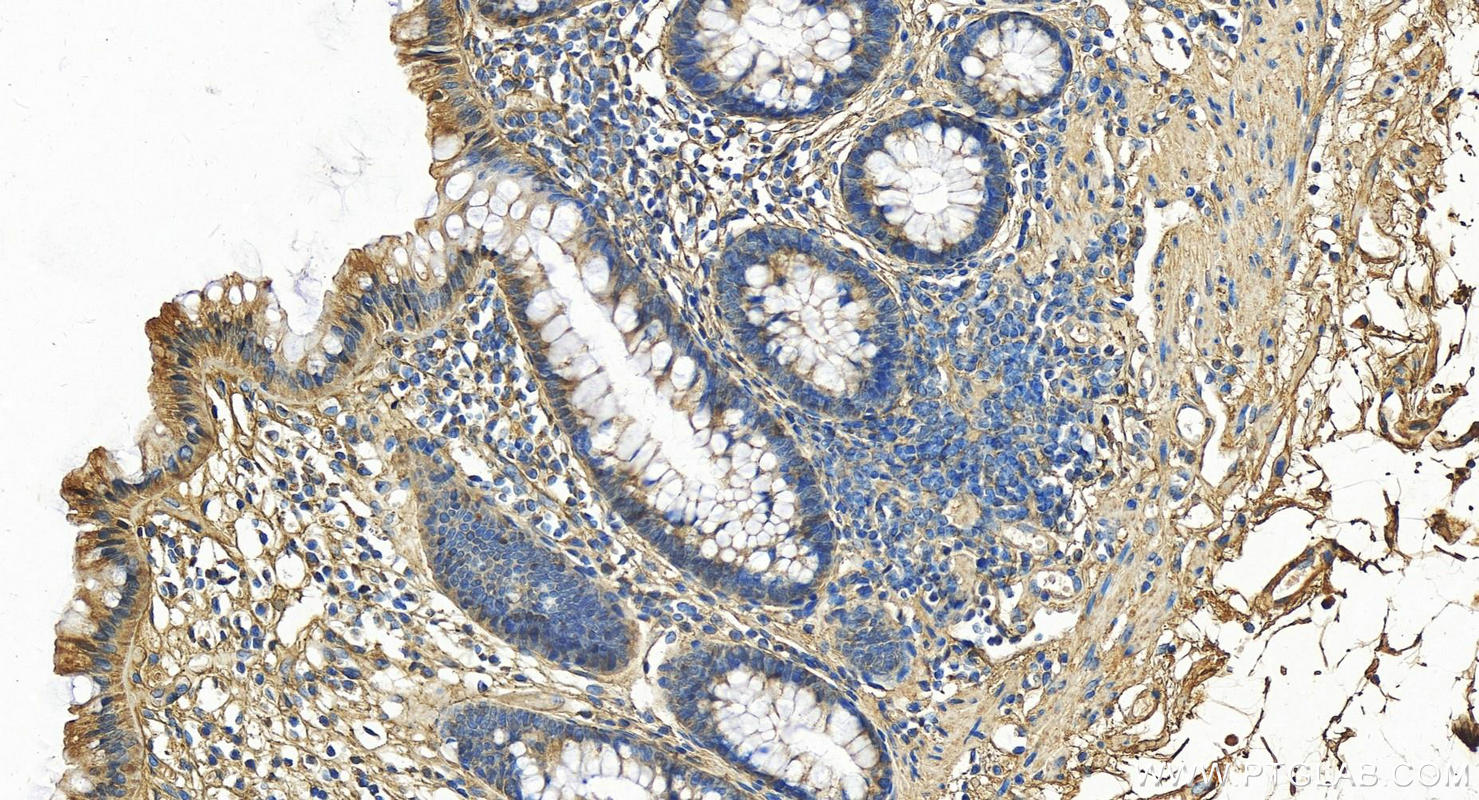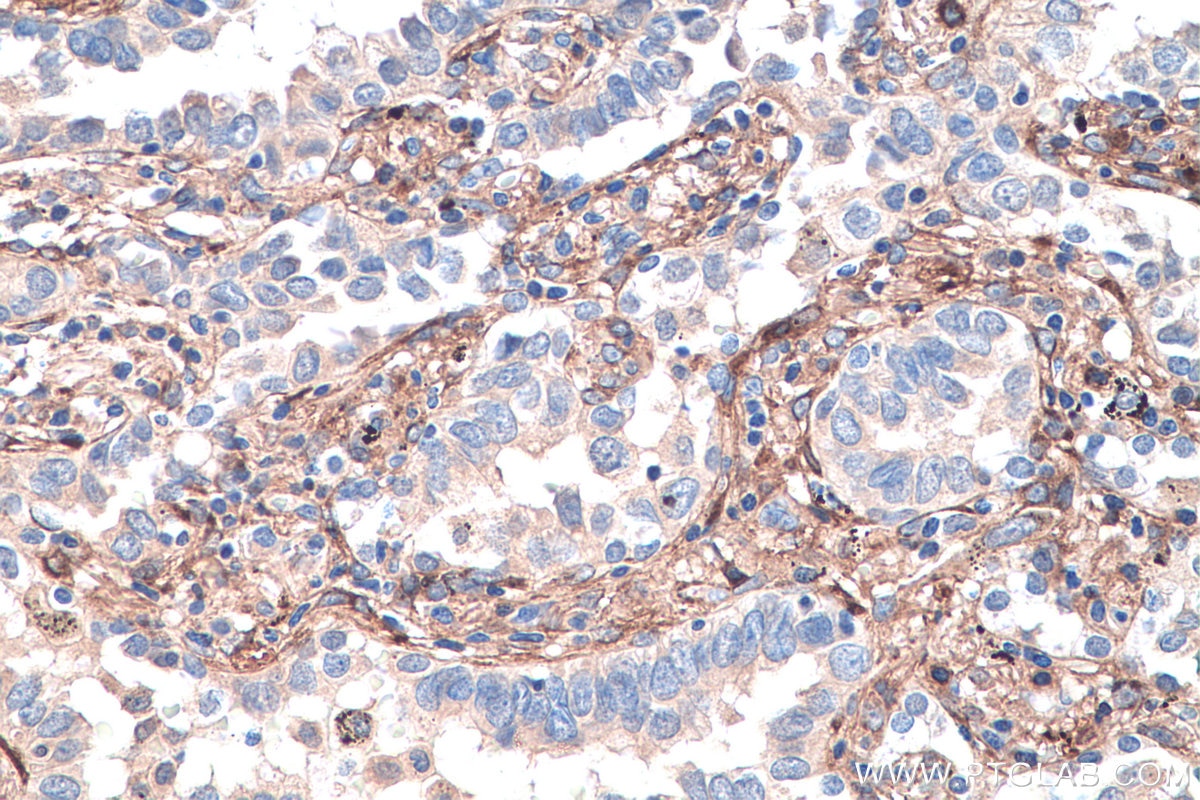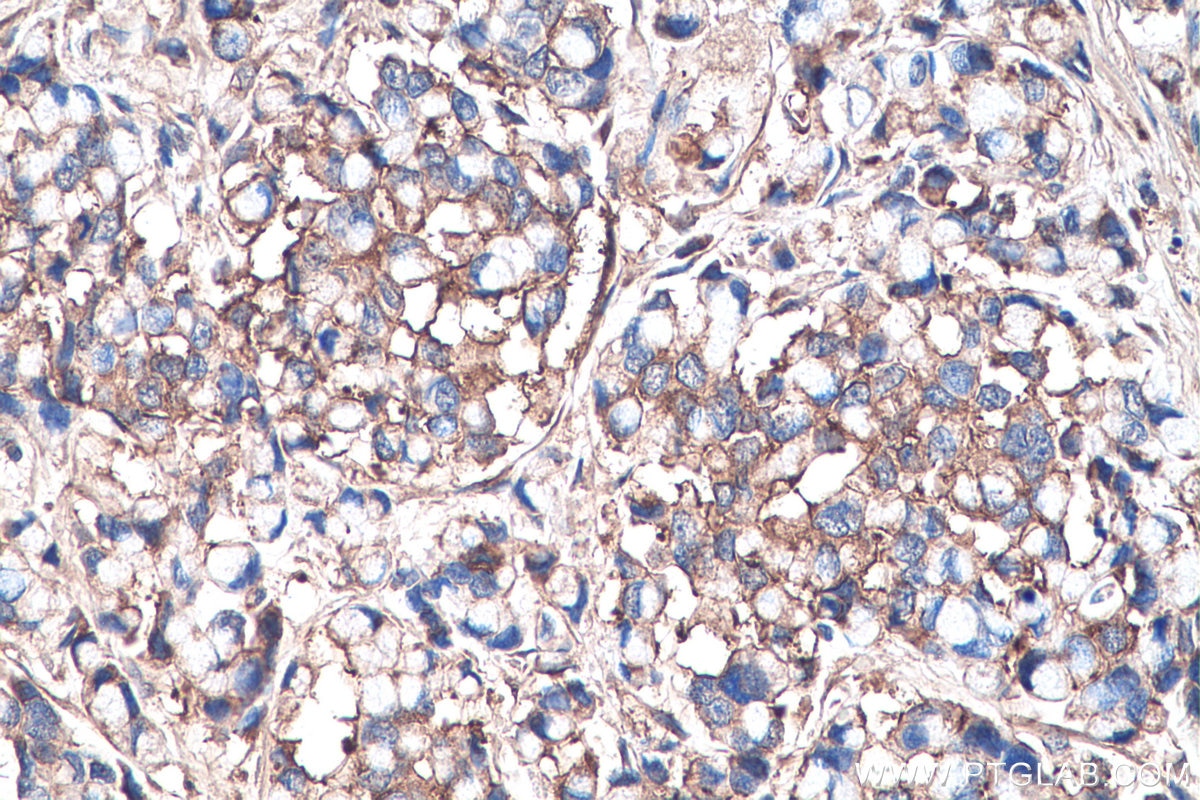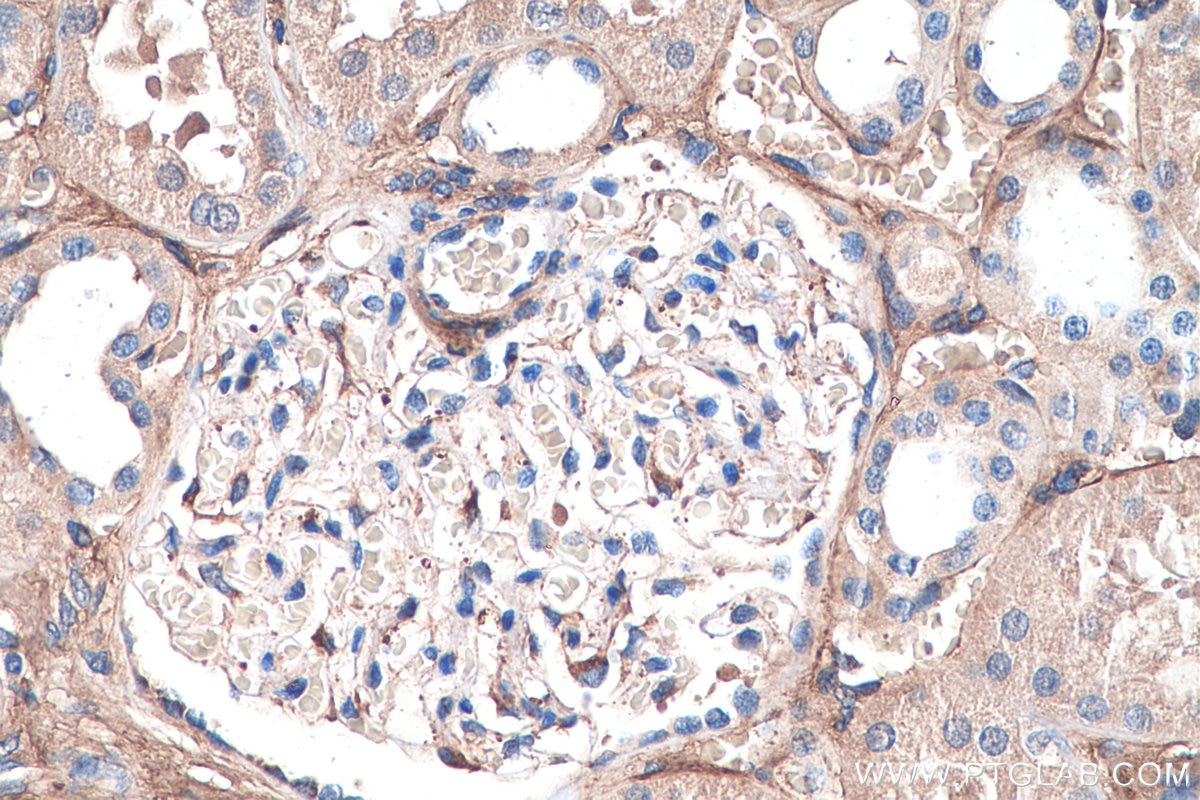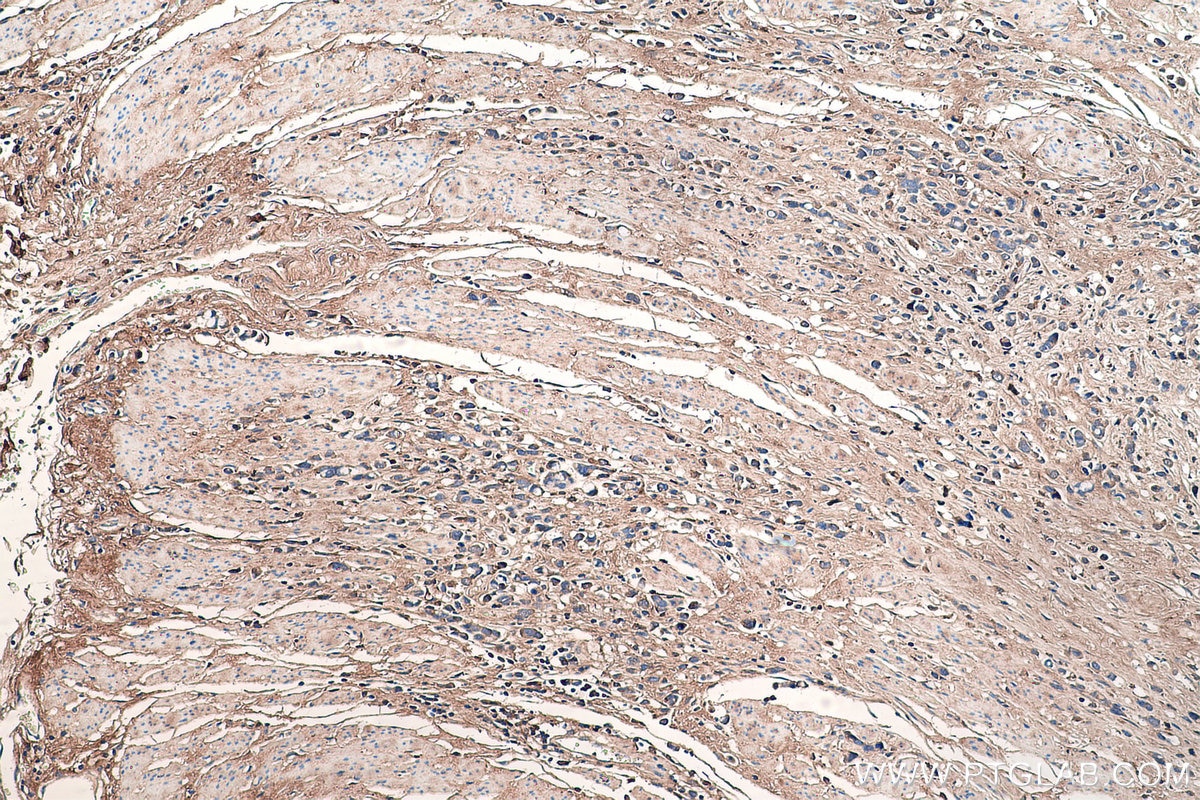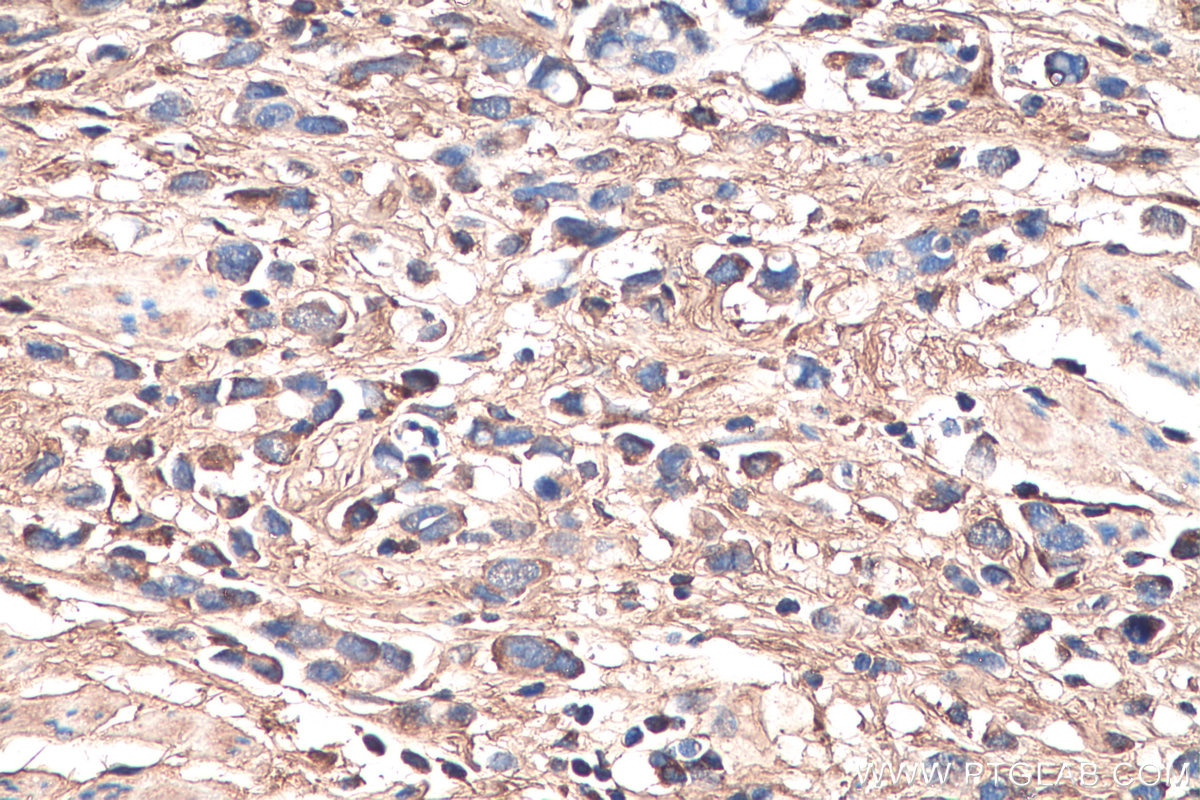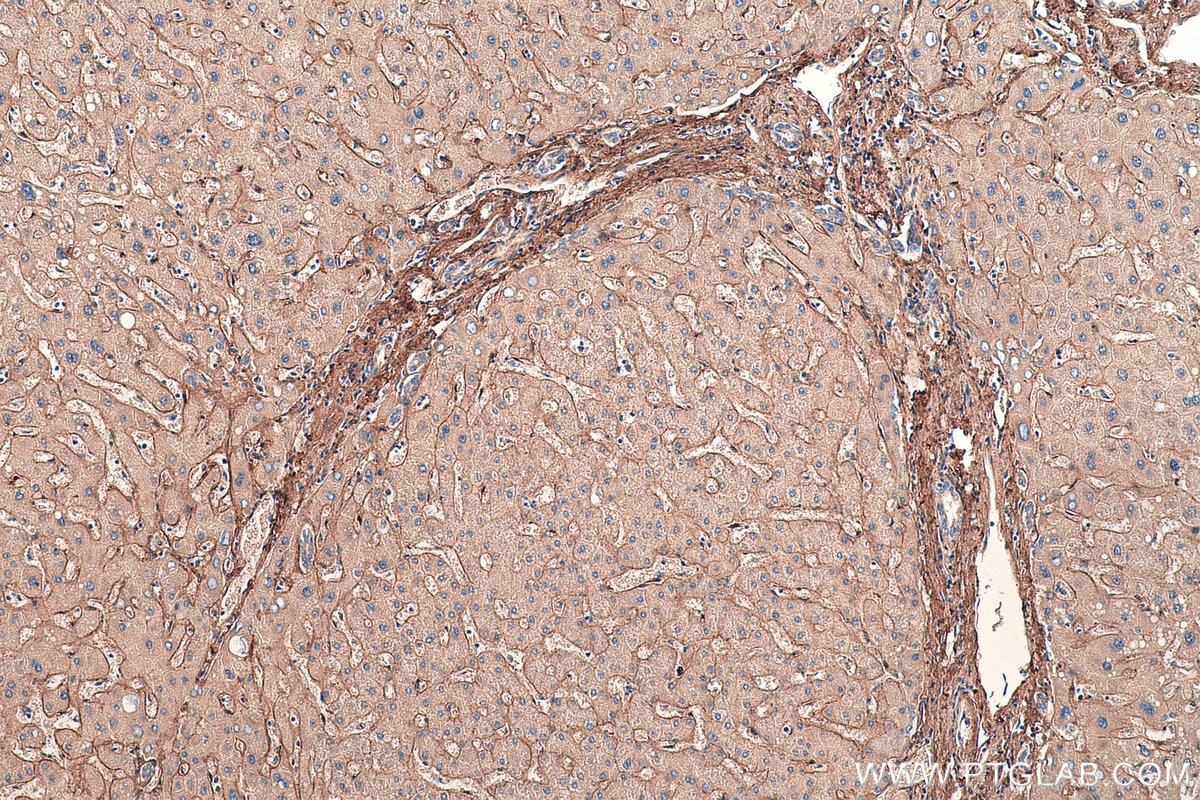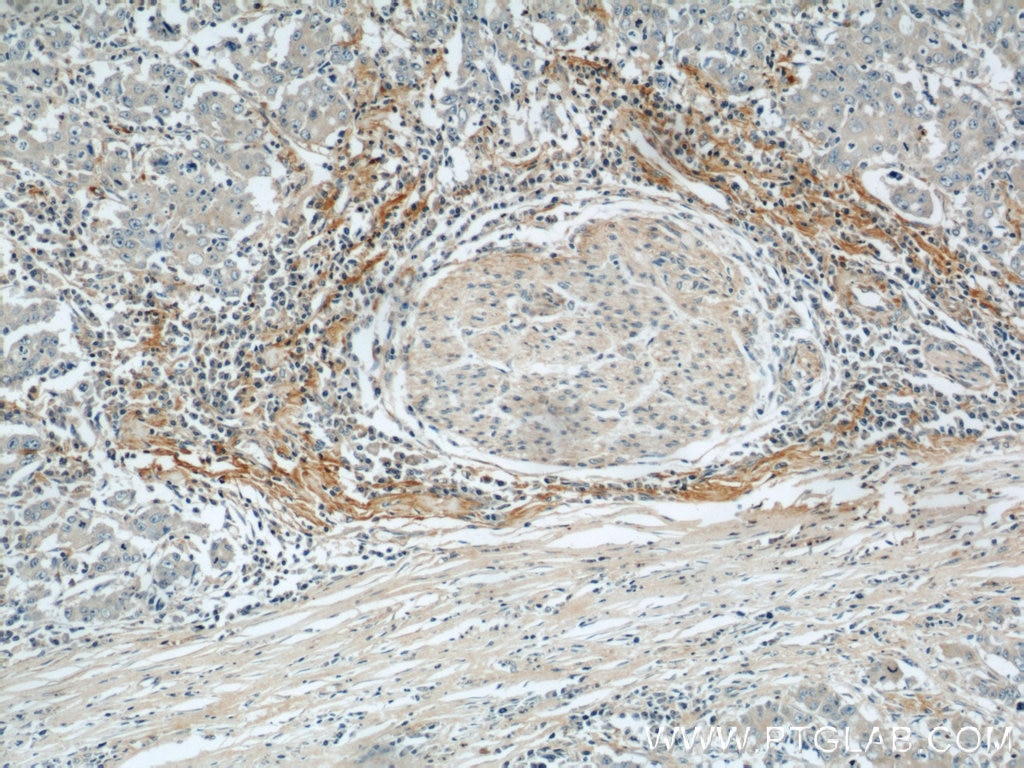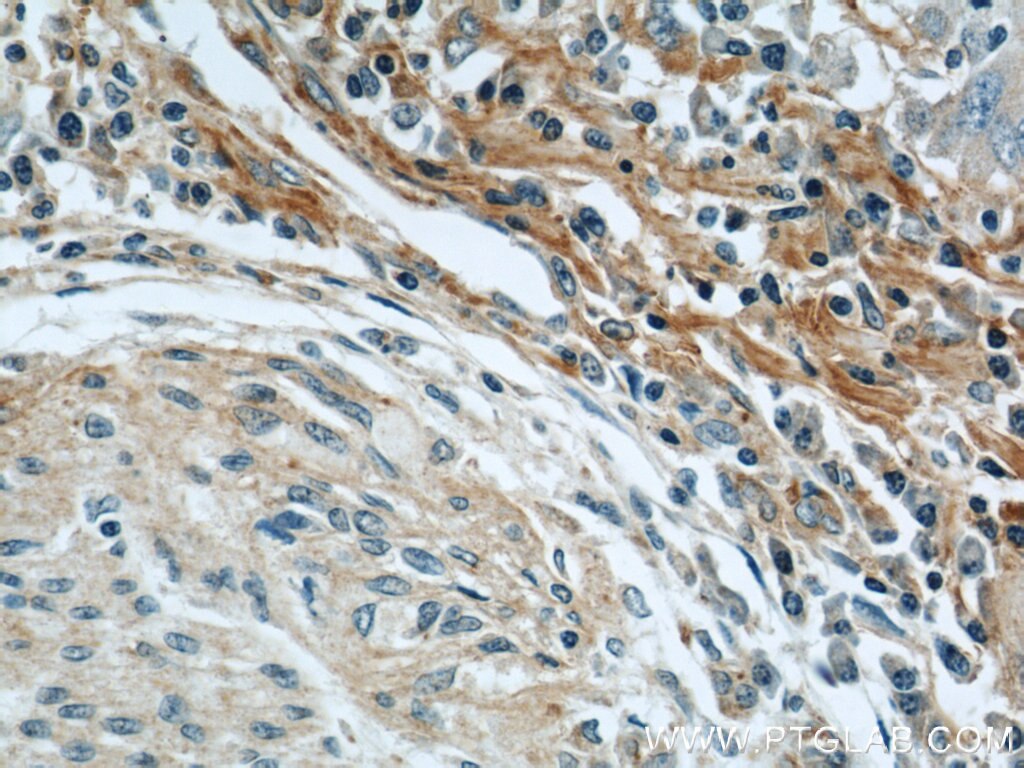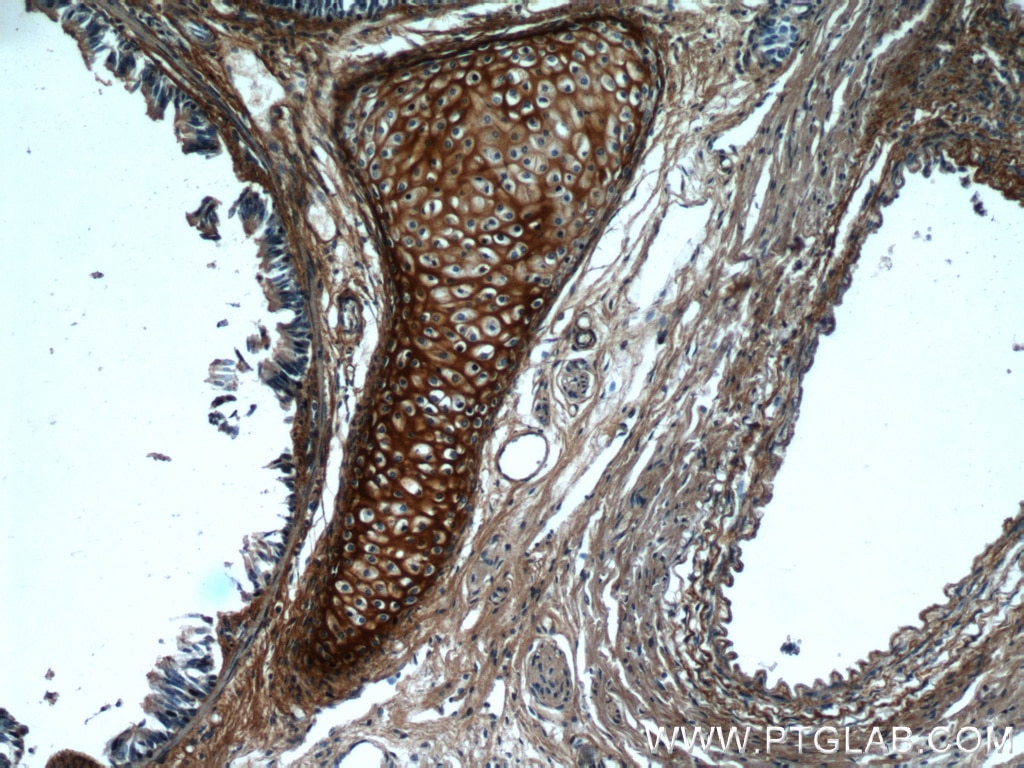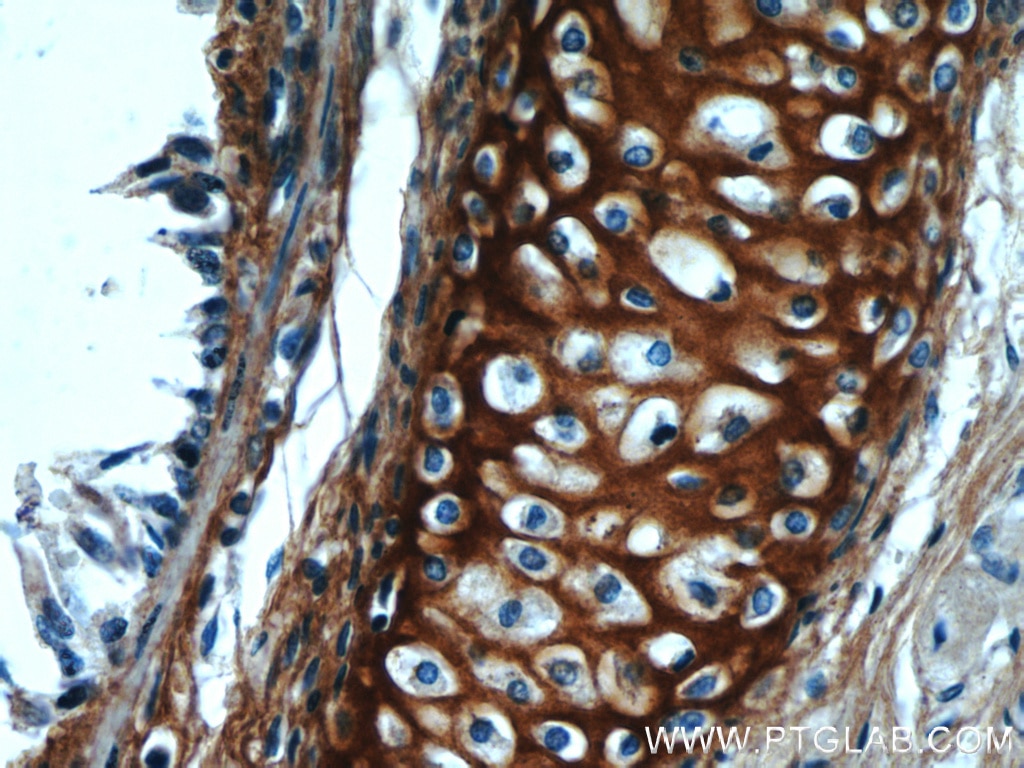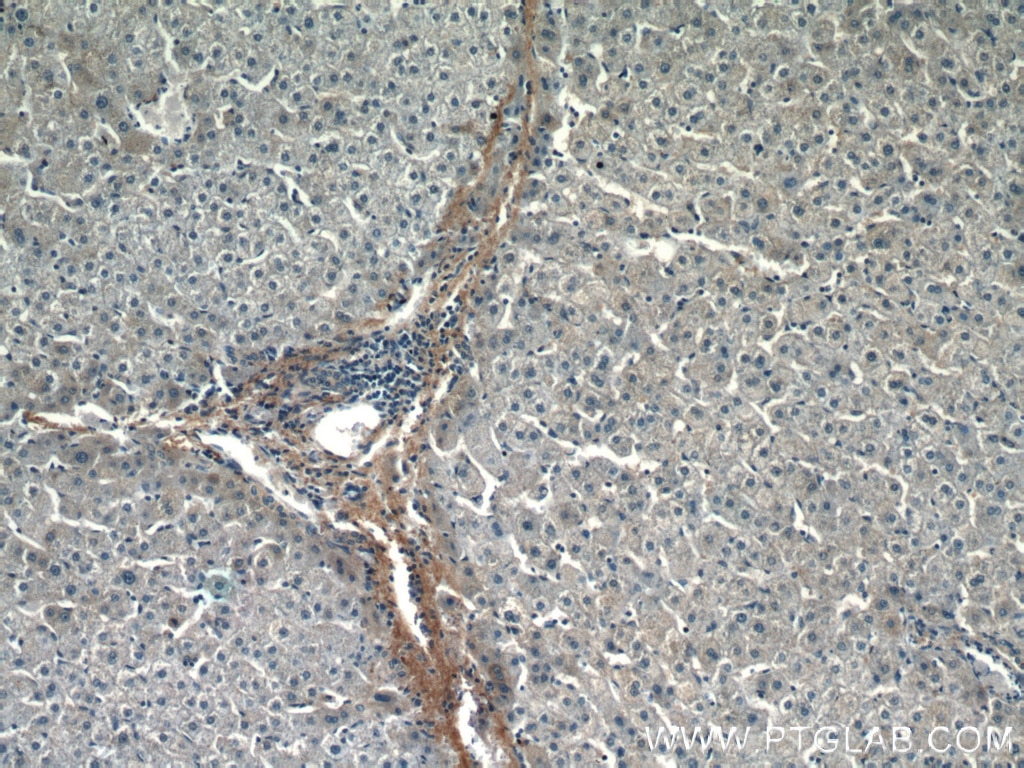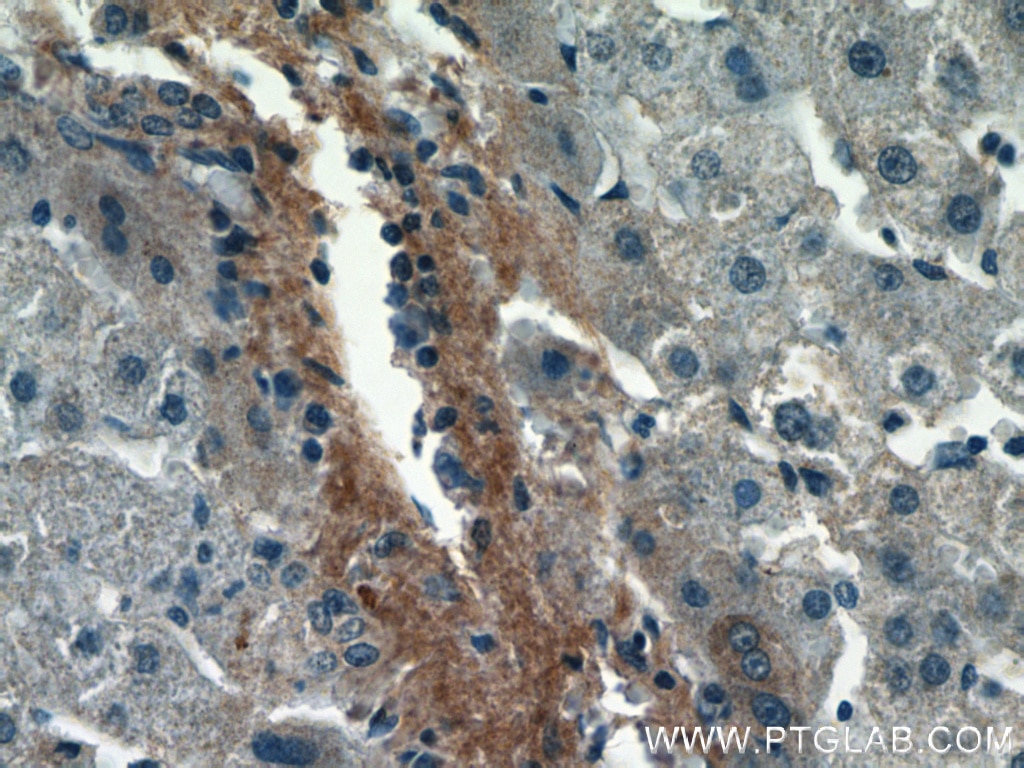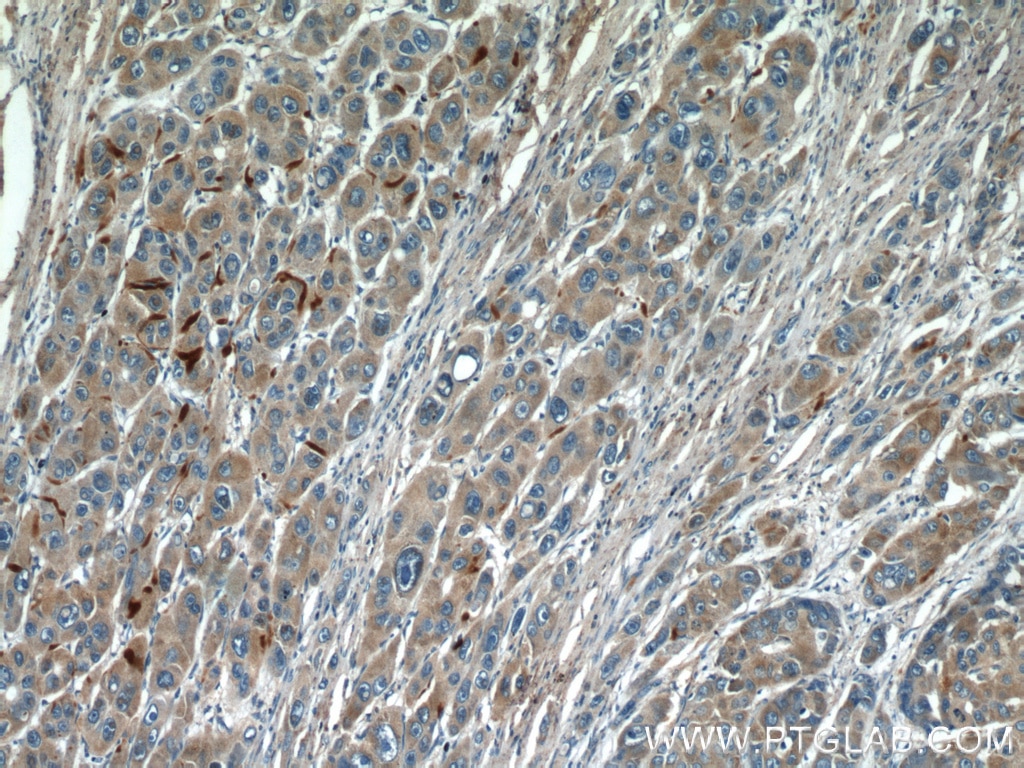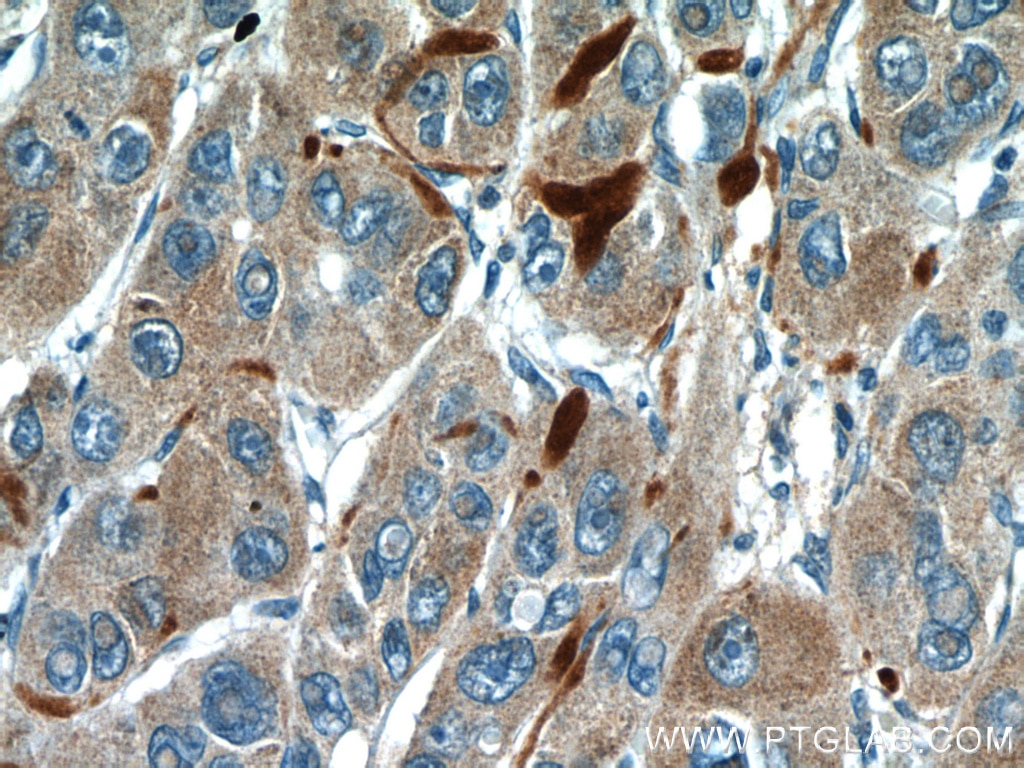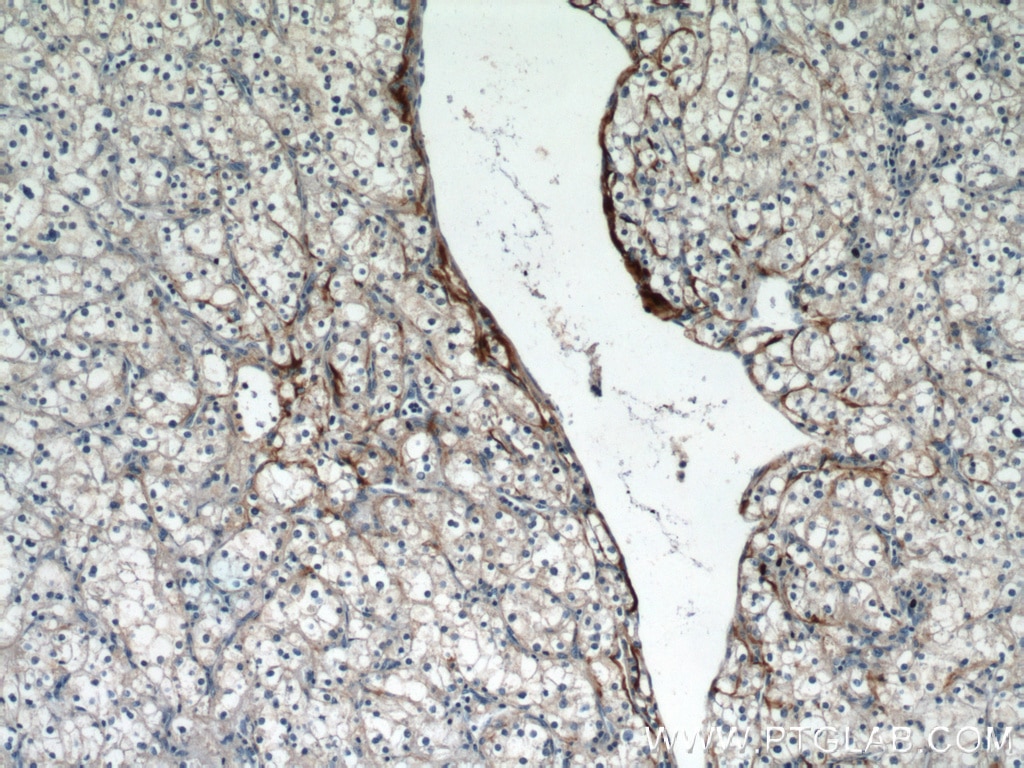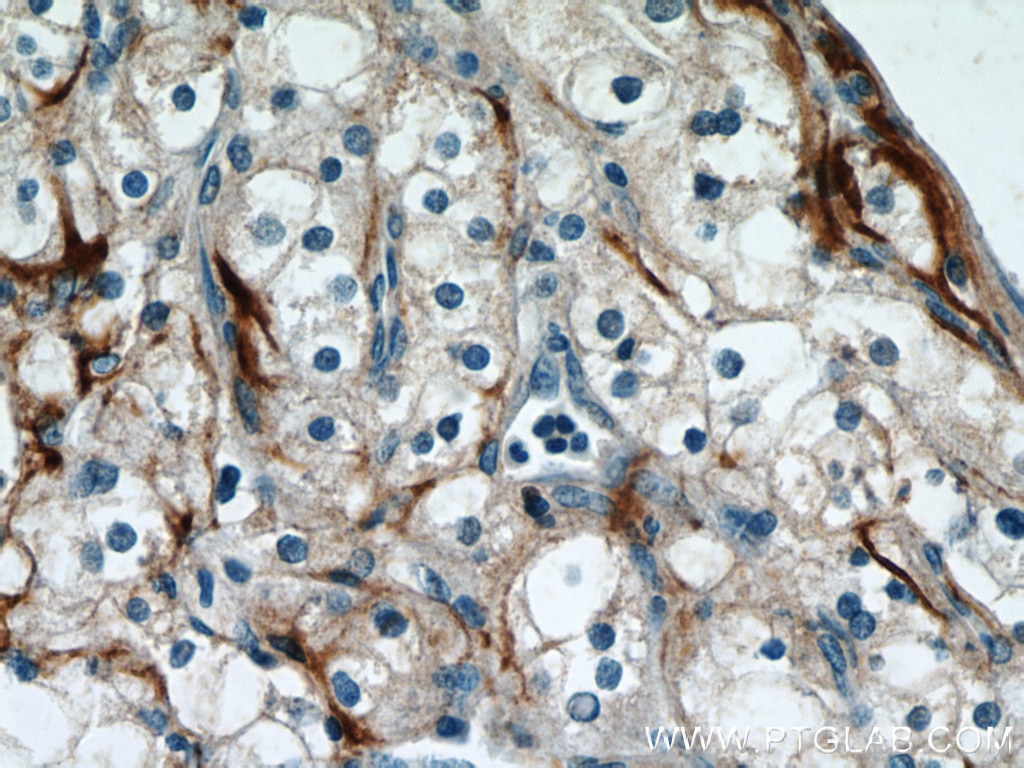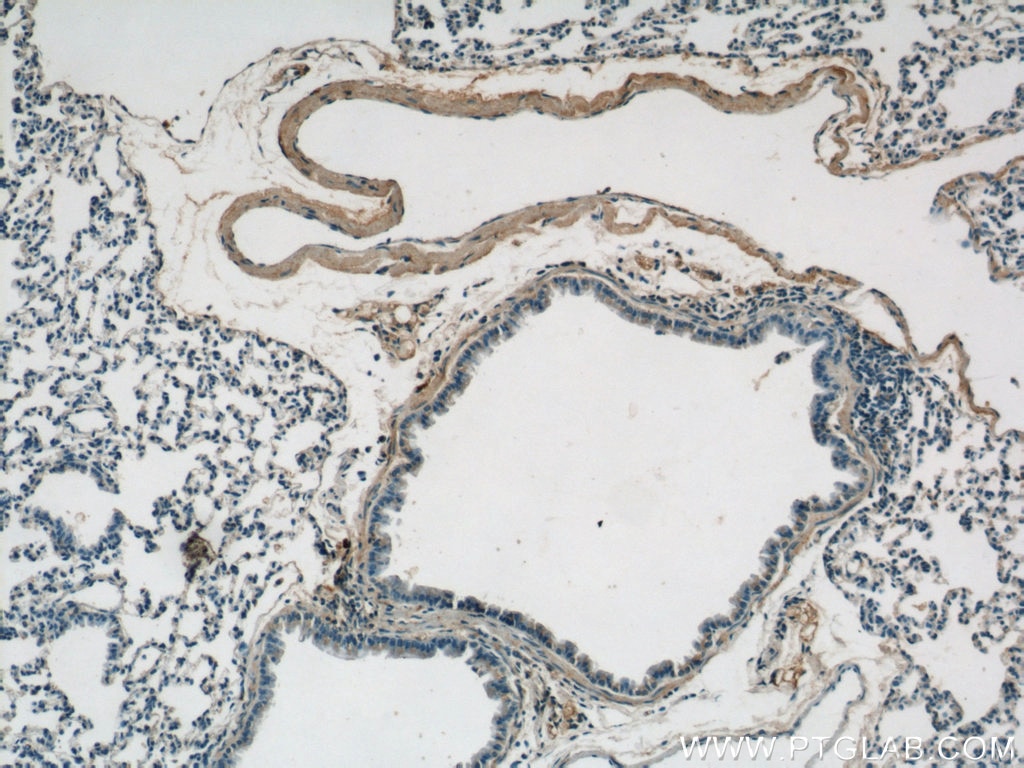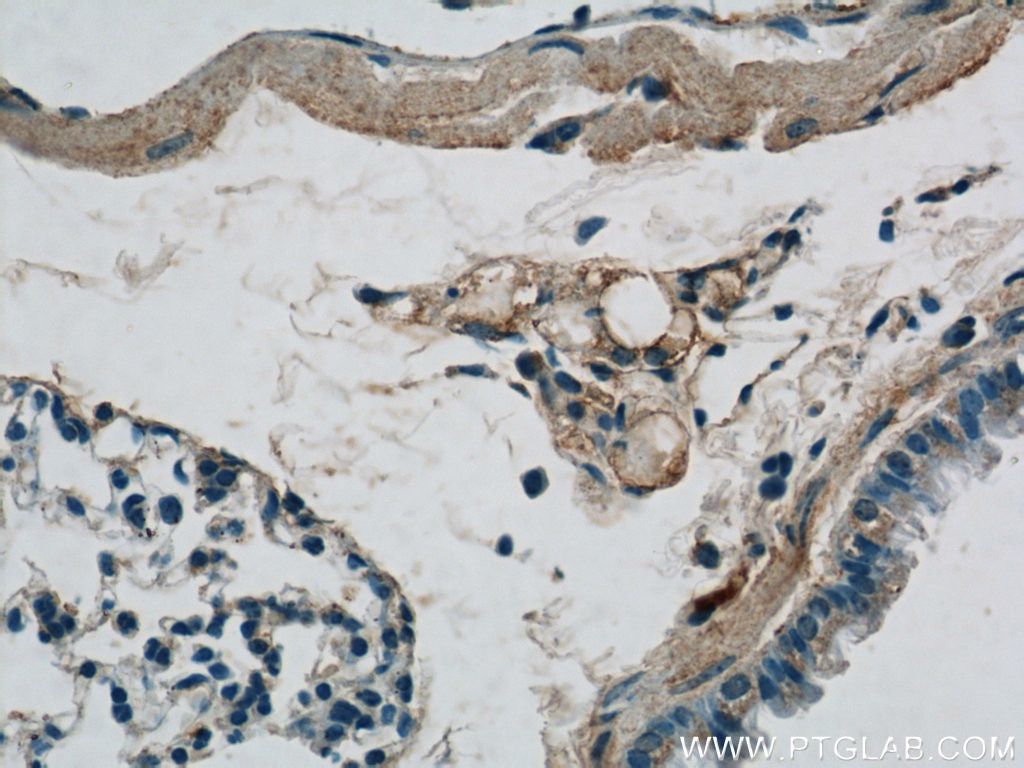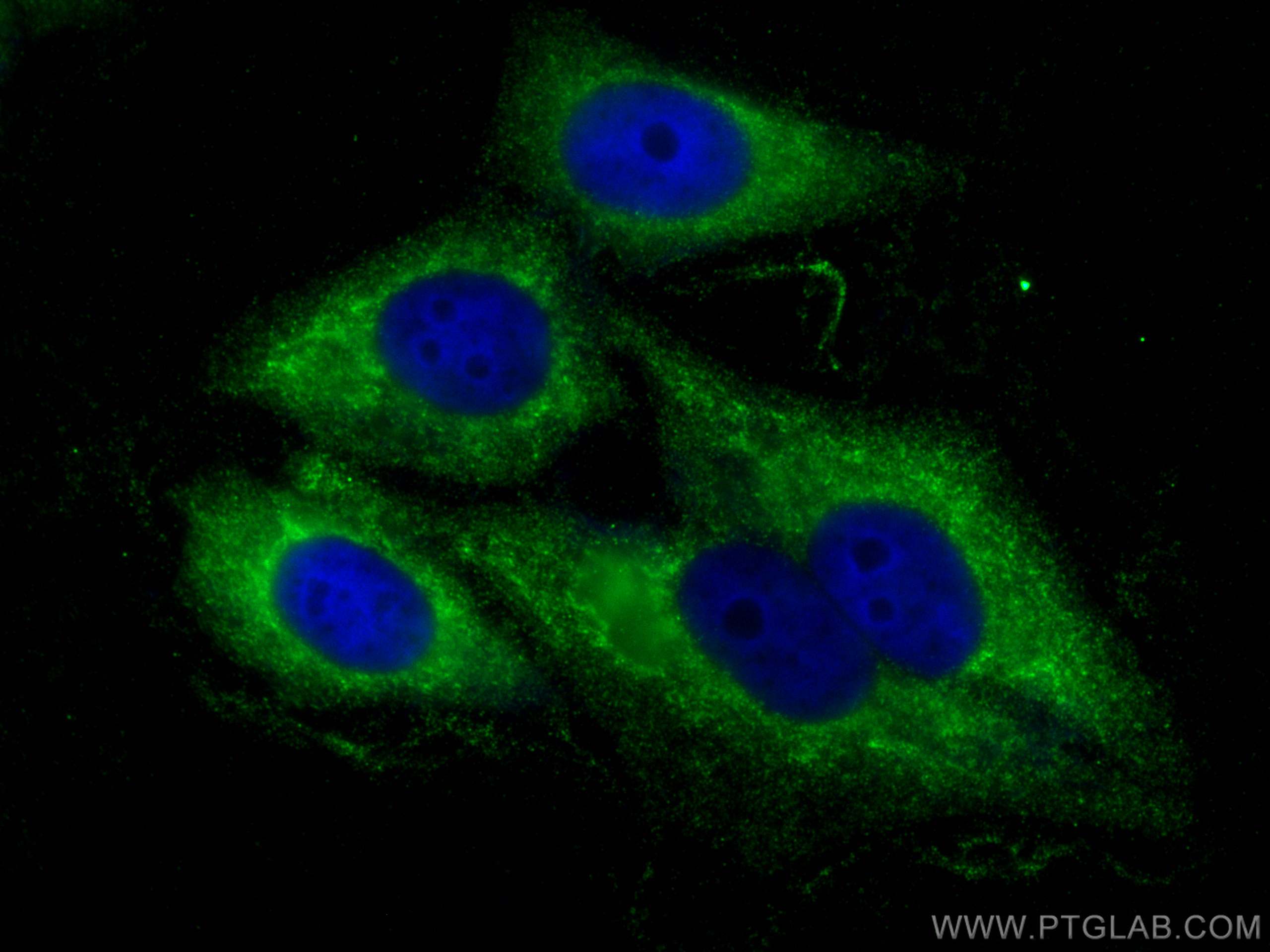Tested Applications
| Positive WB detected in | COLO 320 cells, HeLa cells, HepG2 cells, mouse skeletal muscle tissue, pig cartilage tissue |
| Positive IHC detected in | human lung cancer tissue, human colon cancer tissue, human kidney tissue, human liver tissue, human liver cancer tissue, human lung tissue, human renal cell carcinoma tissue, human stomach cancer tissue, mouse lung tissue Note: suggested antigen retrieval with TE buffer pH 9.0; (*) Alternatively, antigen retrieval may be performed with citrate buffer pH 6.0 |
| Positive IF/ICC detected in | HepG2 cells |
Recommended dilution
| Application | Dilution |
|---|---|
| Western Blot (WB) | WB : 1:1000-1:5000 |
| Immunohistochemistry (IHC) | IHC : 1:200-1:4000 |
| Immunofluorescence (IF)/ICC | IF/ICC : 1:200-1:800 |
| It is recommended that this reagent should be titrated in each testing system to obtain optimal results. | |
| Sample-dependent, Check data in validation data gallery. | |
Published Applications
| KD/KO | See 3 publications below |
| WB | See 21 publications below |
| IHC | See 9 publications below |
| IF | See 11 publications below |
Product Information
16409-1-AP targets Biglycan in WB, IHC, IF/ICC, ELISA, Cell treatment applications and shows reactivity with human, mouse, rat, pig samples.
| Tested Reactivity | human, mouse, rat, pig |
| Cited Reactivity | human, mouse, rat, canine |
| Host / Isotype | Rabbit / IgG |
| Class | Polyclonal |
| Type | Antibody |
| Immunogen |
CatNo: Ag0683 Product name: Recombinant human Biglycan protein Source: e coli.-derived, PGEX-4T Tag: GST Domain: 1-368 aa of BC004244 Sequence: MWPLWRLVSLLALSQALPFEQRGFWDFTLDDGPFMMNDEEASGADTSGVLDPDSVTPTYSAMCPFGCHCHLRVVQCSDLGLKSVPKEISPDTTLLDLQNNDISELRKDDFKGLQHLYALVLVNNKISKIHEKAFSPLRKLQKLYISKNHLVEIPPNLPSSLVELRIHDNRIRKVPKGVFSGLRNMNCIEMGGNPLENSGFEPGAFDGLKLNYLRISEAKLTGIPKDLPETLNELHLDHNKIQAIELEDLLRYSKLYRLGLGHNQIRMIENGSLSFLPTLRELHLDNNKLARVPSGLPDLKLLQVVYLHSNNITKVGVNDFCPMGFGVKRAYYNGISLFNNPVPYWEVQPATFRCVTDRLAIQFGNYKK Predict reactive species |
| Full Name | biglycan |
| Calculated Molecular Weight | 42 kDa |
| Observed Molecular Weight | 40-48 kDa |
| GenBank Accession Number | BC004244 |
| Gene Symbol | Biglycan |
| Gene ID (NCBI) | 633 |
| RRID | AB_10804656 |
| Conjugate | Unconjugated |
| Form | Liquid |
| Purification Method | Antigen affinity purification |
| UNIPROT ID | P21810 |
| Storage Buffer | PBS with 0.02% sodium azide and 50% glycerol, pH 7.3. |
| Storage Conditions | Store at -20°C. Stable for one year after shipment. Aliquoting is unnecessary for -20oC storage. 20ul sizes contain 0.1% BSA. |
Background Information
Biglycan is a member of the small leucine-rich proteoglycan (SLRP) family (PMID: 18463092). It consists of a core protein of 42 kDa containing leucine-rich repeats (LRRs), to which two chondroitin/dermatan sulfate side chains are covalently bound (PMID: 2212616; 10383378). The tissue-specific chondroitin- or dermatan-sulfate glycosaminoglycan chains of biglycan are attached to amino acid residues at the N-terminus of the core protein (PMID: 22821552). Biglycan is a ubiquitous component of connective tissue matrix and may act as a signaling molecule (PMID: 22821552). Upregulation of biglycan has been reported in multiple types of solid cancer (PMID: 32194659).
Protocols
| Product Specific Protocols | |
|---|---|
| IF protocol for Biglycan antibody 16409-1-AP | Download protocol |
| IHC protocol for Biglycan antibody 16409-1-AP | Download protocol |
| WB protocol for Biglycan antibody 16409-1-AP | Download protocol |
| Standard Protocols | |
|---|---|
| Click here to view our Standard Protocols |
Publications
| Species | Application | Title |
|---|---|---|
Oncoimmunology Landscape of cancer-associated fibroblasts identifies the secreted biglycan as a protumor and immunosuppressive factor in triple-negative breast cancer. | ||
Cancers (Basel) Biglycan Promotes Cancer Stem Cell Properties, NFκB Signaling and Metastatic Potential in Breast Cancer Cells.
| ||
J Biol Eng Proteomic analysis of decellularized mice liver and kidney extracellular matrices | ||
Oncoimmunology Biglycan-mediated upregulation of MHC class I expression in HER-2/neu-transformed cells. | ||
Cell Prolif Aspirin inhibits inflammation and scar formation in the injury tendon healing through regulating JNK/STAT-3 signalling pathway. | ||
Cancer Med Establishment of a risk model by integrating hypoxia genes in predicting prognosis of esophageal squamous cell carcinoma |
Reviews
The reviews below have been submitted by verified Proteintech customers who received an incentive for providing their feedback.
FH MALLIKARJUNA (Verified Customer) (10-14-2025) | VERY GOOD FOR IF
|
FH MALLIKARJUNA (Verified Customer) (10-14-2025) | good antibody
|
FH Lin (Verified Customer) (11-18-2024) | Cells were fixed in 4% PFA, permeabilized with .1% Triton, and blocked for 1 hour. 1o was incubated overnight in 1% BSA followed by 2o incubation for 1hr and imaging. More concentrated dilutions than 1:500 (eg 1:200) produced nonspecific aggregates outside of cells that were not seen in 2o only control.
|
FH Federica (Verified Customer) (12-08-2023) | Leica Bond Rxm Red Chronogenic Kit Antigen Retrival ER1 (ph6) for 30 min
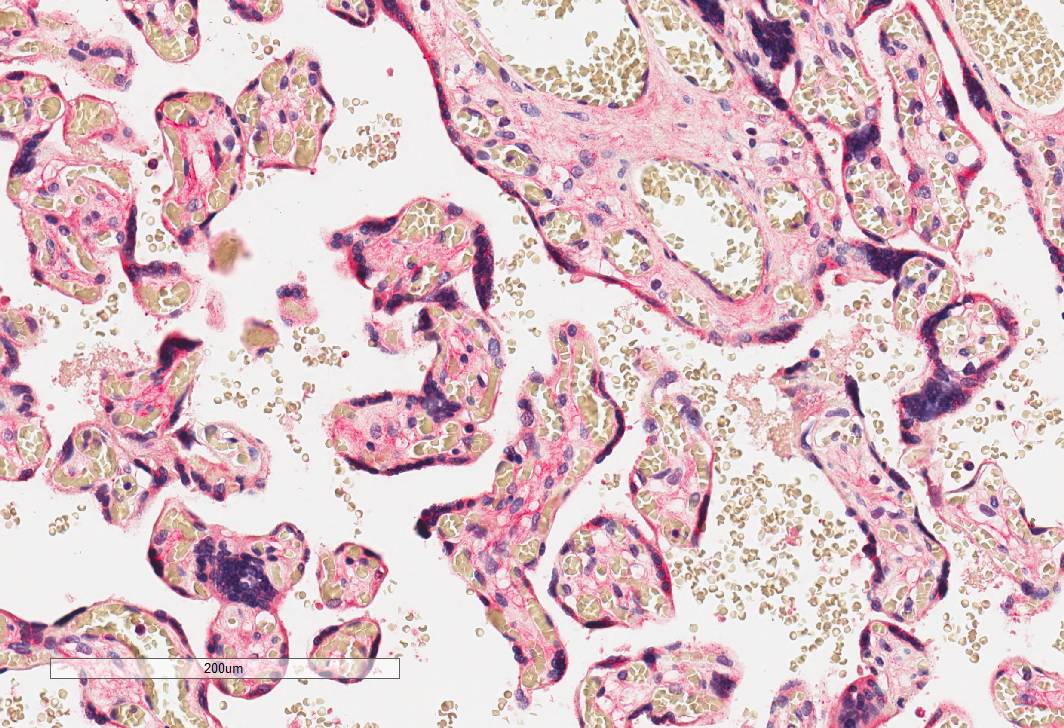 |

